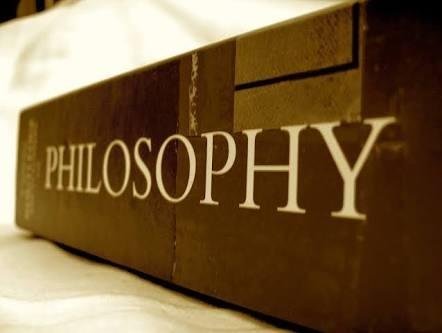for what study philosophy?

As we know that philosophy is the mother of science Sociology itself is a science born from the womb of positivism philosophy which is fertilized by Comte's idea to discover social law The position of philosophy is very much in studying sociology, because by studying philosophy, then we can clearly know how the genealogy of a science Philosophy is the first step we must pass before understanding sociology.However, most of the sociologists themselves are essentially philosophers.
Before answering the question above, we define in advance what is meant by philosophy. Etymologically, the term philosophy comes from the Greek word philosophos which consists of two elements of the word, (1) philos means lovers or seekers, while (2) sophia means wisdom or knowledge. Thus, simply the term philosophy can be interpreted as "loving wisdom" and philosophers we can interpret the lovers of wisdom. In this regard, Phytagoras states that only God has real wisdom. The task of man in the world is to seek wisdom and love of knowledge.
Philosophy is a way of studying all reality to the deepest causes. Keep in mind that philosophy is not the culture of the ancient Greeks, but the culture of all humanity who live in various times. Philosophy departs from the events experienced every moment and when people start asking, think deeply, then that's where he started to philosophize.
As a creature with reason, philosophy is a part of human life in capturing and interpreting the reality it faces. Human ignorance of something will give rise to a question. According to Peursen, asking is a bond between man and events. Therefore, one will philosophize because he has been driven by a great sense of wanting to know.
There are three reasons behind why a person philosophizes, namely: a sense of wonder, doubt and awareness of limitations.
- Sense of Wonder
At first philosophy begins with the emergence of a sense of wonder or a sense of awe of an object being observed. These feelings make one wonder, such as "why does it happen? how should we respond to that? "and other questions that require someone to try to find the answer. Immanuel Kant, for example, started philosophizing because he was amazed at the stars in the sky and the moral laws in the human heart.
According to Aristotle, humans differ from animals in terms of experience producing technical skills in handling things. In his mind he retraced the symptoms he observed. He wonders about the meaning and cause of everything. Sense of wonder is an incentive for philosophy and the ability to hold philosophical reflection uplift human beings.
Thales, the first Greek philosopher, always looked up at the sky because of the wonder of his mind. To the extent that once he had plunged into the well because it was so khusyu (cool) he looked at his beautiful sky. He also looked at everything and saw that water was everywhere. From his observations and contemplation he concludes that water is the essence or the most basic of all things.
Unlike the case with Thales, Anaximenes after observing everything inferences under the initial element of everything is not water but the air. According to Anaximander, the element of everything is "infinite". According to Heraklitos, everything flows (panta rei), in this world everything is not fixed, everything is constantly changing.
- Doubts
Philosophy can also begin with a sense of doubt about what the senses see. He asked if what he saw was a hoax. Feelings of doubt, restlessness, anxiety, uncertain uncertainty causes a person to be driven to think about the object he observes. That torture feeling will only be remedied if he has found the answer or certainty of the question nesting dipikirannya. In other words man wants certainty, therefore he philosophizes.
Doubt on the truth behind the object that can be sensed, encouraging one to seek certainty about the real answer. Kesangsia can lead someone to the truth. An example of a philosopher originating from doubt is Augustine (354-430) and Rene Descartes (1596-1650).
- Awareness of Limitations
Man begins to philosophize when he begins to realize how small, weak and insignificant he is in the midst of a vast, powerful, and terrifying universe. His experience also shows how man is powerless. People feel so happy life with loved ones. But when the man faces death, he becomes so vulnerable. Then he asked what is death? What will happen after death? Will man live again after death? Where is he after death? What should he prepare to face death?
When faced with suffering or failure, he is always encouraged to ask: why is he suffering? Why do others seem to have never suffered? Why are criminals such as murderers, thieves, swindlers and liars can be so happy? Whereas good and generous people suffer? So then one concludes that the happiness in this world is only a temporary mirage, the people who live well will gain happiness in the next life that is eternal.
Based on the above explanation, then we can conclude that philosophy is an activity of contemplating or thinking of all objects that are sensed or experienced by humans to satisfy the curiosity that enveloped his mind through profound reasoning.